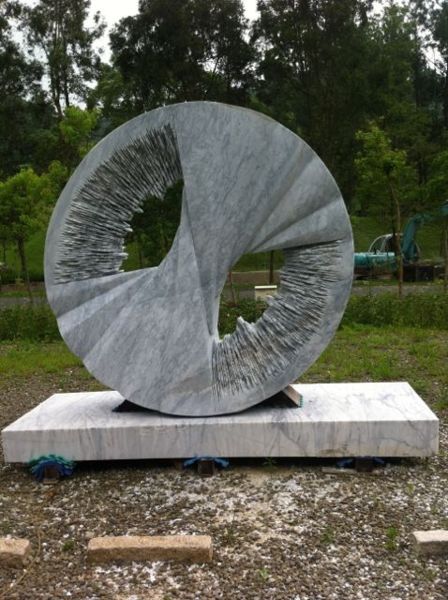

 字體:小 中 大
字體:小 中 大 |
|
|
|
| 2012/05/21 12:33:37瀏覽1647|回應0|推薦3 | |
海明威 (Ernest Hemingway, 1899-1961)的“流動的饗宴”(A Moveable Feast, 1964) 一書中, 第五章談到虛假的春天(A False Spring), 他寫道“ When spring came, even the false spring, there were no problems except where to be happiest. The only thing that could spoil a day was people and if you could keep from making engagements, each day had no limits. People were always the limiters of happiness except for the very few that were as good as spring itself..” 他認為人的打擾往往成為阻隔快樂的因素, 除了極少數個性像春天一樣的人例外, 所以人常常成為興緻的破壞者。眼尖的讀者會發現該書的出版是在海明威1961年自殺之後, 所以可以用 his posthumous work 來表示。正如同父親死後才出生的叫“ 遺腹子”(a posthumous child)。 海明威在1953年以“The Old Man and the Sea) 獲得普利茲獎(Pulitzer Pride), 1954年獲得諾貝爾文學奬, 對他作品的評語是“ for his powerful, style-forming mastery of the art of narration.” (劇力萬鈞, 妙筆生花。) 人生最不逢春之處應該是被別人甚至好友背叛吧! 比如 ” After years of devotion, I’ve been kicked in the teeth by my closest friends.” (多年來對人忠心耿耿, 卻換得知交倒扒一把。) “ He is your best friend. Why does he want to take you down with him?” (他是你最好的朋友, 為何他要拖你下水呢?) “take you down” 就是連你一起淹死, 所以, “ I’m not going down alone.” 就是指要死也會找個人作伴, 而威脅相關者或敵對人物會一起倒楣, 可以用 “ threatening another that he will suffer the same fate.” 至於幸災樂禍, 就說 “ Don’t gloat.” “ What kind of friend are you? You are running out on me.” 指對方危急時拋下你不顧, 算哪門子的朋友? 當對方對你死活不聞不問時, 可以用下面幾句話表達: You’re leaving me high and dry. You’re leaving me in the lurch. You’re abandoning me when I need you most. You’re leaving me holding the bag. 所謂 holding the bag 就是背負包袱 leaving someone to take the blame; 也就是承受惡果 (face the consequences) 的意思。 |
|
| ( 知識學習|語言 ) |










